Tanzania spring cycle volunteer manager and team leader arrival
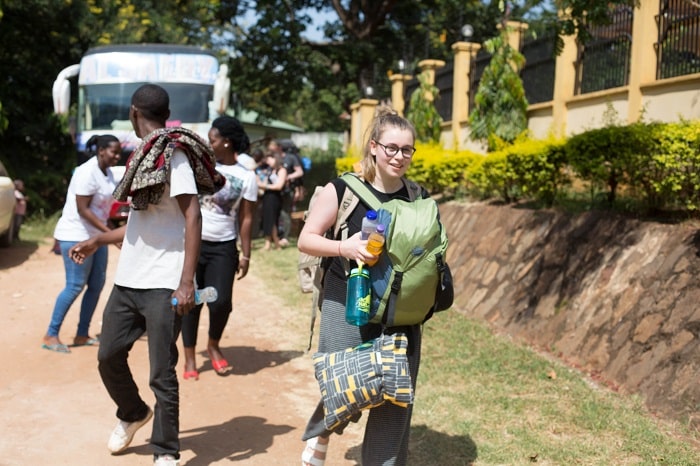
The training is delivered in both English and Kiswahili, “we are talking about lots of technical risk assessment associated material so we need to be sure in-country volunteers understand what we mean in context. By translating technical language, we make it clear for when volunteers go to the village and put training into practice.”
– Johnathan (deputy operations manager for spring ’18 cycle).
“We consider the importance of ensuring everyone is comfortable and encouraged to ask questions by assisting them to ask questions in Kiswahili.” – Johnathan.
Arrival in Morogoro
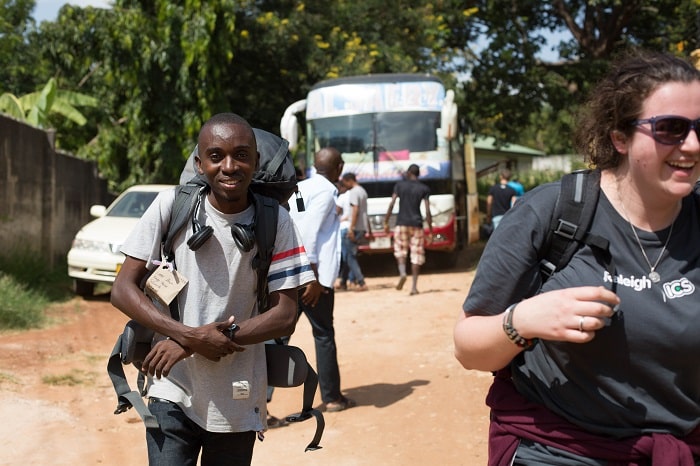
“Within ten minutes of getting off the bus our fellow Tanzanian volunteers welcomed us, encouraging us to say hello in Kiswahili. We spent all afternoon chatting to our counterparts about Tanzania and whether the locations we’ll be working in are new to them too.”
– Libby, ICS team leader.
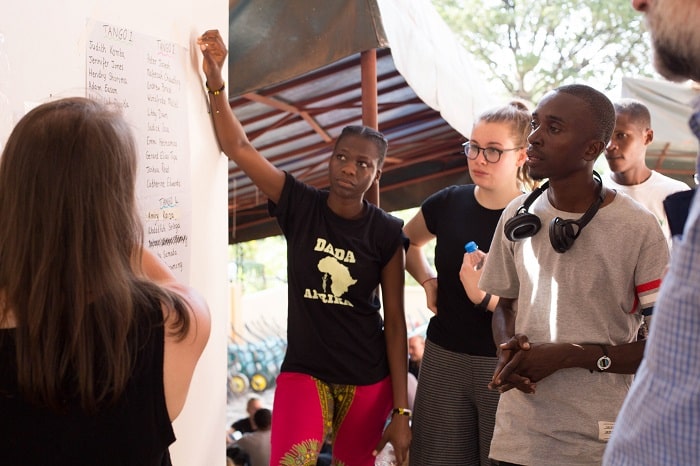
– Lydia, ICS team leader. In this image: Ffion (deputy operations manager), Jovina (deputy operations manager), Lydia and Abdallah (ICS team leaders).
What will the team leaders and volunteer managers be doing when the induction and training phase comes to an end?
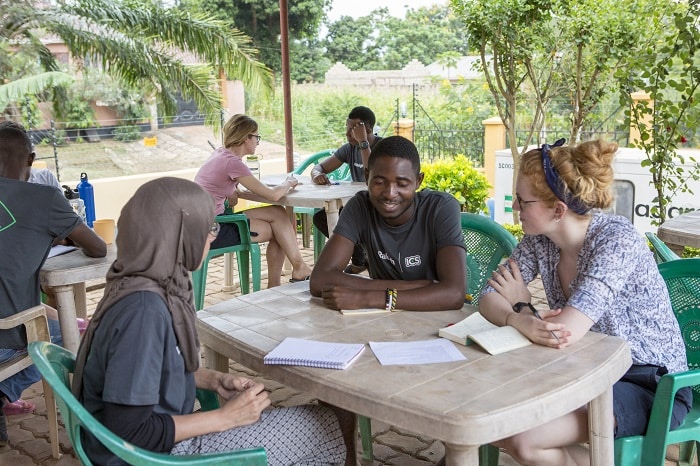
The volunteer managers and team leaders’ arrival has brought the spring projects to life. Once out on project they will be to lead the ICS and expedition projects. For expedition this will include a 19-day youth leadership trek, a natural resource management (NRM) programme and a water, sanitation and hygiene in schools (SWASH) development project.
ICS team leaders will support volunteers living in rural communities for three to nine months. There are two types of projects ICS team leaders will be involved with: They could be working to improve safe water and sanitation facilities in rural communities or they could be focusing on a livelihoods project which involves supporting young people in rural communities to create small businesses or social enterprises. Livelihoods projects aim to reduce youth unemployment and are often referred to as our ICS entrepreneur projects.
Both team leaders (ICS) and volunteer managers (expedition) will support and work alongside the volunteers to ensure the safe and effective delivery of the programmes, whilst encouraging them to work side-by-side with the communities to create lasting change.
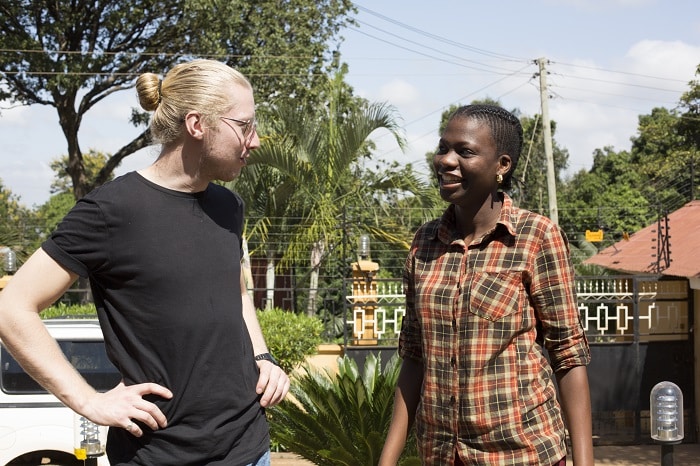
Team leader motivations: Why Raleigh Tanzania? Why now?
“I work as a paramedic in Edinburgh and came here to develop myself both personally and professionally and to, hopefully, use my skill, knowledge to help others.”
– Jenny Jones, expedition medic.
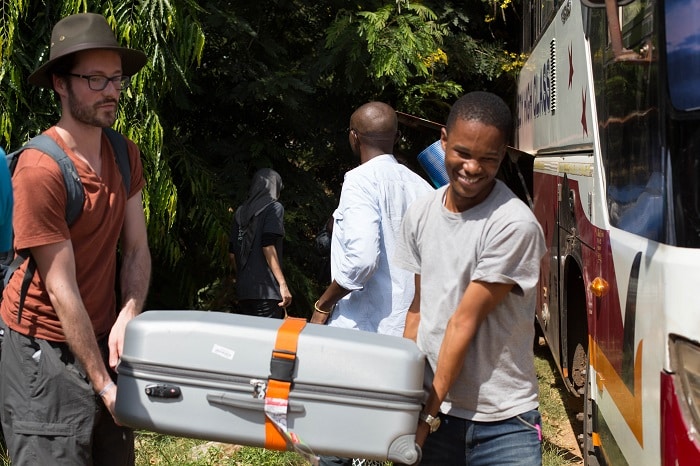
27-year-old volunteer Abdallah Selega was encouraged to take part in the programme after one of the spring cycle deputy operations managers, Jovina, started talking to him about the projects and how they overlap with the work he is already doing in the SWASH (schools water hygiene and sanitation) sector,
“I have been doing business and want to share my entrepeurship skills with the community members and volunteers. I have my own social enterprise called Furaha Pads. Furaha means happiness in Kiswahili. I was inspired to start making my social enterprise focusing on sanitary provisions for young women when I learned that a daughter of my aunt had dropped out of school: she was struggling because she’d stayed out of school for five/six days every month. After talking to her, I discovered this was when she was menstruating. She could not afford sanitary pads which would fit in her pockets for school. The problem is that smaller pads cost over $1. I believe I have good knowledge and I want to impart that to the communities I work in with Raleigh, empowering young girls to stay in school for longer. This Raleigh project will further my knowledge of the provisions of portable affordable pads in rural areas, I want to understand these young females’ problems.”
The international and Tanzanian volunteers have a diverse range of motivations for wanting to take part in the programmes. It is an inclusive environment in which each volunteer is challenged to progress in their own personal development as well as in their ability to contribute as active global citizens working to build a sustainable future.
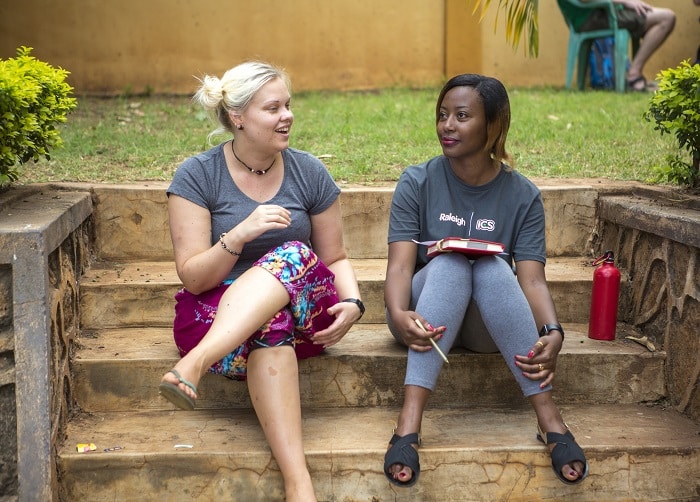
ICS team leaders Emmi and Glory take some time to learn about each other.
“Before Raleigh I was an entrepreneur, helping students apply for university and loans. This is my second Raleigh experience now as I was a volunteer in the last Sept – Dec cycle. I have come back because even though I have experience as a volunteer now there is always room for more improvement and personal development.”
– Sadick Issa, 26.
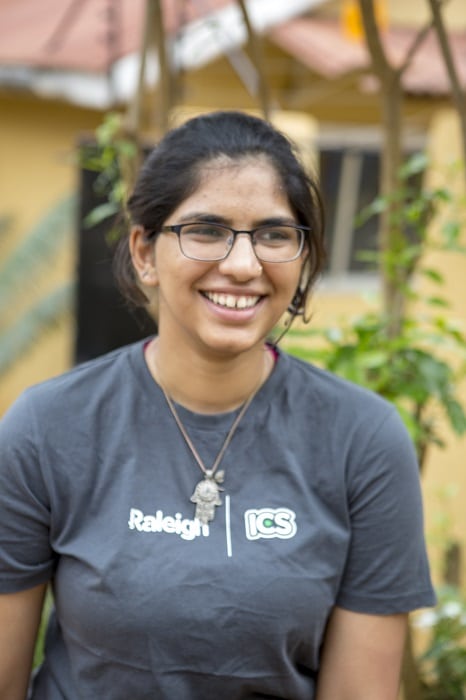
“I was given the opportunity to volunteer on an ICS programme in autumn 2015 and before that cycle ended I knew that I would love to return to the programme as team leader someday when I fitted the age and experience required. My main inspiration were the team leaders I met as a volunteer. They were leaders who seemed to embody their beliefs. Leaders who were mindful, supportive and always willing to learn. Since 2015, I made a conscious effort to become an active, invested citizen in the U.K. My passion for immigration, race, gender equality and environmental sustainability led me to first volunteer with NIAS (National Institute for African Studies) in London and eventually to this Raleigh programme in Tanzania. The infectious warmth of the in-country volunteers, new shared experiences with team leaders and the international community at fieldbase gives me hope that the leader and learner in me is going to grow, grow, grow!”
– Sayali Sakharkar, ICS spring cycle team leader.
What comes next for our team leaders and volunteer managers?
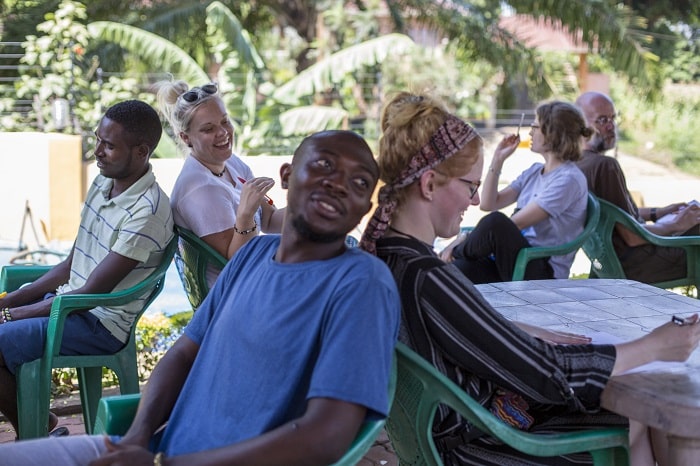
The coming weeks will be filled with group training sessions that will include everything from health and safety and finance through to emergency incident management and sustainable development. Immersion into Tanzanian culture is also encouraged via cultural awareness, village life and leadership training sessions and even a practice trek for volunteer managers on the expedition programme.
Now that the first week of training is complete, volunteer managers and team leaders will be put into pairs and allocated to their initial project sites. They will then be sent out to their focus communities to put their new skills into practice on a project planning visit (PPV). PPVs allow the team leaders (ICS) and volunteer managers (expedition) time to familiarise themselves with the area, risk assess, and meet the communities they will be working alongside. After spending a few days on PPV the team leaders (ICS) and volunteer managers (expedition) will head back to fieldbase in Morogoro to finish off planning and preparing for the volunteers’ arrival within the week.
The group of volunteer managers and team leaders come from a diverse mix of backgrounds and have embraced each other and their new environment. This week they have been sharing their motivations for signing up to the programme whilst beginning to step outside of their comfort zones. Training sessions encourage team leaders to think about how they will support the young volunteers who have signed up for this spring cycle programme, whether in their personal wellbeing or in making positive change together in the communities they will be working in, developing personally all the while.
It’s the energy and motivation of empowered people that create lasting change. Stay tuned to our blog and social media channels on Facebook and Instagram to follow the progress of our Tanzania spring cycle volunteers.



